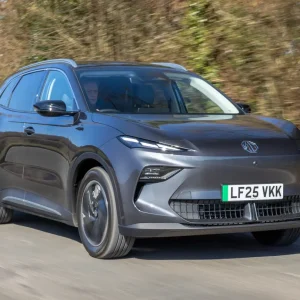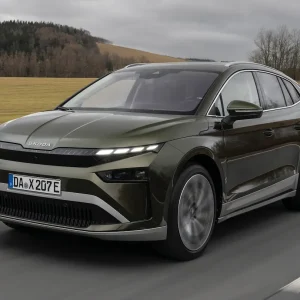This seventh-generation version of the BMW 3 Series is undoubtedly the most important model launch for the manufacturer this year.
Deliveries of the new BMW 3 Series saloons, codenamed G20, have now started, and while it has always been a desirable user-chooser car, competition in its class has never been stronger than it is today.
Not only is it taking on the likes of the facelifted Mercedes-Benz C-Class range, it has future competition in the shape of the Jaguar XE, which will begin deliveries in the summer.
At the launch of the new range, new corporate sales boss Rob East told us that the new 3 Series is the beginning of the manufacturer pulling back from the more intense volume we have seen in recent years, perhaps making it a better investment for fleets. But is this new strategy, and its new model offering, enough to attract fleet managers to choose them over rivals?
The range takes a back-to-the-drawing-board approach to styling, incorporating some of BMWs newest design cues. At its core, the driving experience aims to retain BMW’s approach to driving pleasure, all the while adding in some new advanced tech.
The manufacturer is initially offering two versions of the 3 Series; at the top of the range the petrol-powered 330i, and this car, the 320d, priced from £33,350 for the lower-range SE equipment grade. Lower-powered versions will follow.
The G20 3 Series, as well as its predecessor, are as large as a 5 Series from the 1990s. Sit in the back and the new car is far more generous than the previous generation. There is lots more legroom, the driver has a huge range of seat adjustment, and as for cubby holes there is a place for just about everything. Boot space is the same as before, though.
You get autonomous emergency braking and lane departure warning, and a head-up display as standard. As an option, you can even press a button to remember the last few metres of your drive into a parking space or car park and it will semi-autonomously reverse you out. We used this briefly for one manoeuvre, but it seemed to worked perfectly.
Under the bonnet the 320d runs a 2.0-litre four-cylinder turbo diesel engine and although it is the price leader of the range, don’t expect the 320d to deliver jack-rabbit acceleration. But with 400Nm of torque under foot, it is fairly brisk, and for open road cruising the car is quiet and relaxed. However, around town there is a fair amount of old-fashioned diesel clatter and the engine can feel a bit annoyingly surgy in stop-start traffic.
Like the engine here, the eight-speed automatic gearbox carries over from the previous generation. It is quick enough to deliver on demand but is smooth and subtle for high-speed cruising. The steering is quick and connected, and the chassis allows you to feel that the car is an extension of you rather than the other way around.
Adaptive suspension is optional but was fitted to our test car, and allows you to select comfort to iron out the lumps and bumps, or opt for sport mode for a racier feel.
As we explained in the April issue of Business Car in our Best in Class feature, our figures from KeeResources show the 320d M Sport auto to be the class leader in terms of residual values and low depreciation. It also performs well in terms of fuel economy at 53.3mpg compared to its similar-powered rivals, and has a significant pence-per-mile advantage overall.
While the diesel might work well when it comes to frugal fuel consumption, it is clear that BMW has worked hard to instill that fun-to-drive 3 Series DNA. Compared with its class rivals, the
3 Series range is still top dog.
BMW 320d M Sport auto
P11D £37,940
On sale Now
Residual value 38.6%
Depreciation £23,290
Fuel £5,421
Service, maintenance and repair £2,838
Cost per mile 53.3p
Fuel consumption 53.3mpg
CO2 (BIK band) 112g/km (30%)
BIK 20/40% a month £190/£380
Boot space 480 litres
Engine size/power 1,995cc/190hp





